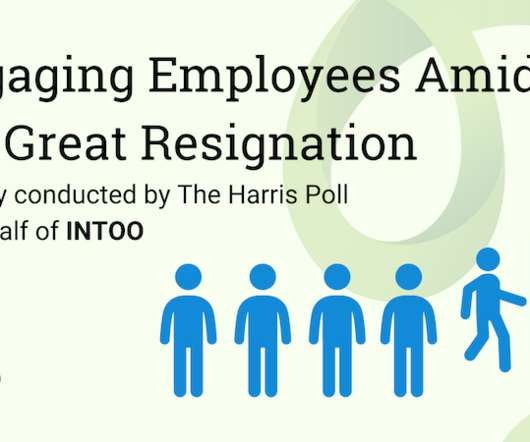What Are the Seven Steps to Succession Planning?
Intoo USA
JULY 21, 2021
Succession planning—a process for creating and maintaining a talent pipeline —is a necessary part of talent management, and is something you’ll appreciate having done especially when faced with a sudden, unexpected event. Who should participate in succession planning? The Seven Steps to Succession Planning.
















Let's personalize your content